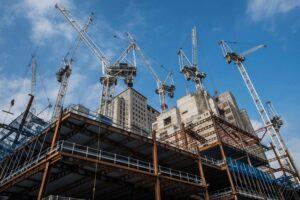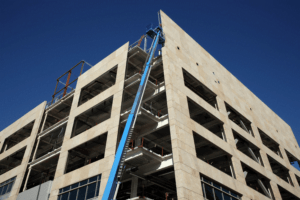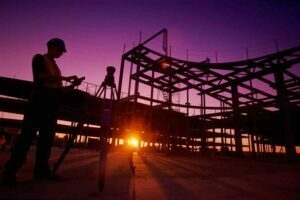Team Opulnz Abode: 11-09-2024, 05:55: Read Time – 2.5mins
India’s real estate sector has undergone a significant transformation in recent years with the introduction of RERA (Real Estate Regulatory Authority). This regulatory framework aims to bring transparency, accountability, and fairness to the industry. One of the key stipulations under RERA is that real estate developers can only offer flats for sale after first obtaining RERA registration. In this article, we will delve into the intricacies of this regulation and its impact on both developers and buyers.
What is RERA and Why Is It Important?
The Real Estate Regulatory Authority (RERA) was set up under the Real Estate (Regulation and Development) Act 2016 to regularise the real estate industry in India. It provides a platform for homebuyers to address grievances while also enforcing strict guidelines on builders to ensure that projects are completed on time and in accordance with the agreed terms.
Before RERA, many homebuyers faced issues such as project completion delays, lack of clarity in property titles, and unfair contract terms. RERA was introduced to empower homebuyers, ensuring that developers comply with the law and maintain transparency in all their dealings, thereby making them feel more secure and confident in their investments.
Godrej Miraya: New Launch on Golf Course Road
Key Features of RERA
Registration Requirement: Every real estate project must be registered with RERA before it is advertised, marketed, or sold.
Transparency: Developers must provide precise, accurate details about the project, including timelines, floor plans, and statutory approvals.
Fairness: RERA mandates that developers adhere to the timelines they set, and any deviation can result in penalties or even imprisonment.
Grievance Redressal: Homebuyers can file complaints against developers through RERA’s portal, ensuring a swift resolution process.
Why Developers Cannot Offer Flats Without RERA Registration
One of the pivotal aspects of RERA is that no real estate developer can advertise, market, or offer a flat for sale without obtaining RERA registration. This regulation is designed to protect homebuyers from fraudulent practices and ensure that all aspects of the project are legally compliant.
Legal Implications of Non-Compliance
Developers who do not register their projects with RERA before selling or advertising the property can face severe legal consequences. Section 59 of the RERA Act states that non-compliant developers can be fined up to 10% of the project cost, and repeated violations can lead to imprisonment for up to three years. This underscores the criticality of RERA registration for developers.
Moreover, buyers are legally entitled to a full refund and interest if they have purchased a flat in a project that is not RERA-registered. This provision empowers buyers and ensures that developers follow the proper legal channels before putting a property on the market.
Ensuring Buyer Confidence
By mandating RERA registration, the government has taken significant steps to restore buyer confidence in the real estate sector. Homebuyers can now verify whether a project is RERA-compliant through the RERA portal, which provides crucial information such as the project’s completion timeline, current status, and any pending legal matters, making them feel reassured and optimistic about the real estate market.
This means developers must complete all formalities—including obtaining necessary approvals from local authorities—before launching their project. This not only brings more transparency into the real estate market but also ensures that developers are committed to fulfilling their promises to buyers.
Upcoming Projects on Golf Course Road Extension
The Process of RERA Registration for Developers
RERA registration is a rigorous process that ensures that the project adheres to all legal and statutory requirements. Here’s an in-depth overview of the steps developers must take to register their projects under RERA, providing a comprehensive understanding of the process.
Filing the Application: Developers must submit a detailed application to the respective state’s RERA authority. The application must include the project’s name, type (residential or commercial), and the developer’s track record.
Documentation: Developers are required to submit essential documents, including:
Title deeds prove ownership or legal rights over the land.
Approvals from local authorities such as the municipality or town planning department.
Project timelines outlining the start and expected completion dates.
Financial statements verifying the developer’s ability to complete the project.
Project Details: Developers must upload floor plans, architectural designs, and a list of amenities on the RERA website. They are also required to mention any pending litigations related to the project.
Declaration of Timelines: One key aspect of RERA is its focus on timelines. Developers must commit to a delivery date, and any delay in the project could result in penalties or buyer refunds.
Approval and Certification: Once the application and documents are reviewed and satisfactory, the RERA authority grants the registration. The project is then given a RERA registration number, which must be displayed in all advertisements and promotional materials.
Impact of RERA on the Indian Real Estate Market
RERA has had a profound impact on the Indian real estate market, significantly increasing accountability and transparency, and making the sector more buyer-friendly. This transformation is crucial for both developers and buyers to be aware of, making them feel informed and knowledgeable about the changes in the market.
For Developers:
Accountability: Developers are now more accountable for their promises to buyers. They must complete projects on time and adhere to the details provided during the registration process.
Reduction in Delays: RERA’s strict penalties for delays have forced developers to improve their project management practices, significantly reducing delays.
Increased Credibility: Developers who comply with RERA regulations gain more credibility in the market, which can help attract more buyers and investors.
For Buyers:
Safety of Investment: Buyers now have a much safer environment to invest in, protecting them from fraudulent practices and delays. The transparency RERA provides ensures that buyers have all thenecessary information before purchasing
Easy Grievance Redressal: RERA has made it easier for buyers to resolve developer disputes, offering a transparent and efficient process for filing complaints.
Refunds and Compensation: When developers fail to meet the promised deadlines, buyers are entitled to refunds or compensation, ensuring that their investment is protected.
The Future of RERA and Its Role in Real Estate Development
The introduction of RERA has paved the way for India’s more transparent and accountable real estate market. As the industry continues to evolve, RERA is expected to play an even more significant role in shaping future developments. Developers prioritising compliance, transparency, and timely delivery will likely succeed in this new regulatory environment. At the same time, those who fail to adapt may face difficulties.
The continued implementation of RERA will foster greater trust between developers and buyers, contributing to the forward growth and stability of the real estate sector in India. With ongoing updates and enhancements to RERA’s framework, the market is expected to become more organised, making it easier for homebuyers to take informed decisions.
https://www.youtube.com/watch?v=pwDYxzufGEU Source: https://www.linkedin.com/posts/anirban-ghosh-8298a13_real-estate-developer-cant-offer-flat-without-activity-7238701753179742208-hoS0?utm_source=share&utm_medium=member_android

































































































































































































































































































